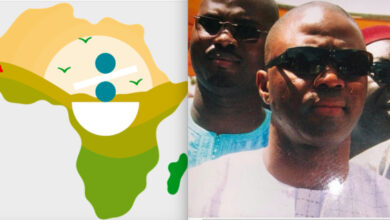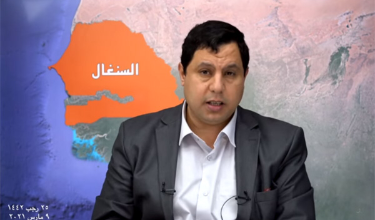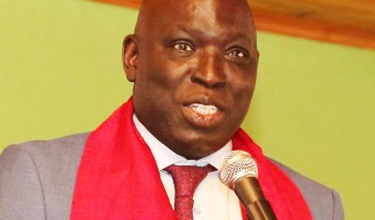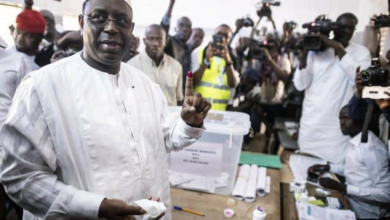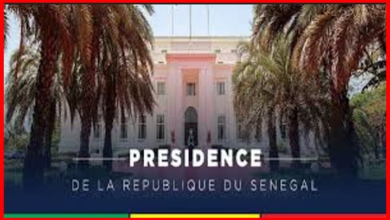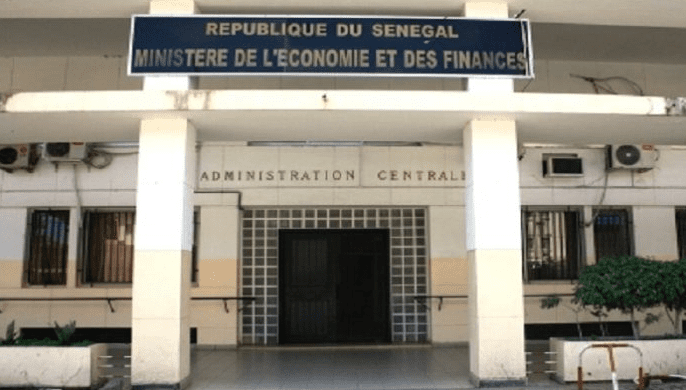
In a dispatch dated June 4, 2024, Bloomberg reported that Senegal had raised a total of 750 million US dollars (450 billion CFA francs) on the international capital markets. The news was widely reported in the media. In a press release dated June 6, 2024, the government confirmed the information, stressing that it had carried out the operation « successfully ». Forum Civil, an organization committed to transparency in the management of public affairs, questioned the conditions under which this operation was carried out, through its coordinator Birahim Seck. « The Minister of Finance and Budget must enlighten us on the choice of JP Morgan London. The problem of transparent intermediation remains », he asked. The government is yet to provide the slightest response to this public interpellation. On the face of it, we could be forgiving of this operation, because as soon as the government led by Prime Minister Ousmane Sonko was installed, some of the most authoritative voices suggested that the financial situation inherited from the Macky Sall regime was catastrophic, and that it was necessary to find financial resources as quickly as possible.
Read the column – Sonko, a Prime Minister who plays the wrong role
Yet, on April 11, 2024, the new regime had cashed in 324 billion CFA francs, the fruit of a loan guaranteed by the African Development Bank (ADB) and authorized by the IMF in December 2023, to get through the first quarter of 2024 marked by an electoral period.
A hidden operation, even to the IMF: A scandal!
Objections to the 450 billion CFA francs raised were simply ignored. It should come as no surprise, for example, that Senegal borrowed this time at the most expensive rate in its debt history, namely 7.75%, on such a short seven-year maturity. But what is the final rate if we include commissions and other intermediation fees kept confidential? The government stressed that it had raised the funds to devote two-thirds to « further optimize debt servicing« . Try figuring out the logic of borrowing at the most expensive rates, in order to buy back cheaper debt! The brilliant Senegalese economists who often talked about these issues have suddenly fallen silent. No one wants to insist on knowing under what conditions the intermediary bank JP Morgan was chosen, without any call for competition, and that the operation presented as a Eurobond is not at all so, but rather reveals itself to be a banal operation to place direct Senegalese bonds with targeted investors. In a classic Eurobond operation, such as those carried out in recent weeks by Côte d’Ivoire, Benin and Kenya, and by Senegal under the Abdoulaye Wade and Macky Sall regimes, transparency is the rule when it comes to choosing the advisory bank, and the intermediation fees and commissions paid. What’s more, road shows are organized for potential subscribers, with the assistance of public international financial institutions.
In a dispatch dated June 4, 2024, Bloomberg reported that Senegal had raised a total of 750 million US dollars (450 billion CFA francs) on the international capital markets. The news was widely reported in the media. In a press release dated June 6, 2024, the government confirmed the information, stressing that it had carried out the operation « successfully ». Forum Civil, an organization committed to transparency in the management of public affairs, questioned the conditions under which this operation was carried out, through its coordinator Birahim Seck. « The Minister of Finance and Budget must enlighten us on the choice of JP Morgan London. The problem of transparent intermediation remains », he asked. The government is yet to provide the slightest response to this public interpellation. On the face of it, we could be forgiving of this operation, because as soon as the government led by Prime Minister Ousmane Sonko was installed, some of the most authoritative voices suggested that the financial situation inherited from the Macky Sall regime was catastrophic, and that it was necessary to find financial resources as quickly as possible.
Read the column – Sonko, a Prime Minister who plays the wrong role
Yet, on April 11, 2024, the new regime had cashed in 324 billion CFA francs, the fruit of a loan guaranteed by the African Development Bank (ADB) and authorized by the IMF in December 2023, to get through the first quarter of 2024 marked by an electoral period.
A hidden operation, even to the IMF: A scandal!
Objections to the 450 billion CFA francs raised were simply ignored. It should come as no surprise, for example, that Senegal borrowed this time at the most expensive rate in its debt history, namely 7.75%, on such a short seven-year maturity. But what is the final rate if we include commissions and other intermediation fees kept confidential? The government stressed that it had raised the funds to devote two-thirds to « further optimize debt servicing« . Try figuring out the logic of borrowing at the most expensive rates, in order to buy back cheaper debt! The brilliant Senegalese economists who often talked about these issues have suddenly fallen silent. No one wants to insist on knowing under what conditions the intermediary bank JP Morgan was chosen, without any call for competition, and that the operation presented as a Eurobond is not at all so, but rather reveals itself to be a banal operation to place direct Senegalese bonds with targeted investors. In a classic Eurobond operation, such as those carried out in recent weeks by Côte d’Ivoire, Benin and Kenya, and by Senegal under the Abdoulaye Wade and Macky Sall regimes, transparency is the rule when it comes to choosing the advisory bank, and the intermediation fees and commissions paid. What’s more, road shows are organized for potential subscribers, with the assistance of public international financial institutions.
Read the column – President Diomaye Faye, visiting Bamako and Ouaga, sees the counter-model!
The modus operandi for a Eurobond is that the operation should be publicized in advance, and that the underwriters should propose financing rates displayed on screen during a public session, which the requesting country then evaluates and negotiates before distributing the portfolio according to its own criteria. The public is informed, right down to the nomenclature of the debts purchased on the occasion! This is certainly not the case with the first private financing operation undertaken by the Minister of Finance and Budget, Cheikh Diba, outside the regional financial markets. JP Morgan only had to approach its privileged clients, and traditional investors who were not consulted or approached pouted in frustration. Other curiosities that could heighten suspicion are also noted. Former British Prime Minister Tony Blair, presented as a JP Morgan VP, was received by President Faye the day after the « fast track » fund-raising operation, even though he was formerly fiercely criticized by Ousmane Sonko. A mere coincidence? What’s more, media reports have revealed that, until recently, some Pastef party executives are former collaborators of JP Morgan.
The IMF a “whistle-blower” for Ofnac
The mission carried out by an IMF team from June 6 to 19, 2024, to review the current program with Senegal (2023-2026), ended with a bang. Edward Gemayel, head of the mission, revealed at a press conference in Dakar that: « Senegal is going through a period of over-financing. The country has borrowed more than necessary, leading to excess liquidity« . He pointed out that the government currently has more cash than it needs. « This surplus financing mainly results from the Eurobond issue of June 3 and 4, 2024« . What’s done is done, and so the IMF seems resigned to « discussing with the government the use of this over-financing to carry out liability management operations ». Mr. Gemayel added, not without flavour: « in other words, to buy back more costly short-term debts with this longer-term, less costly liquidity« . However, it should be noted that the 7.75% rate, already subscribed by Senegal, could not be less expensive than the debts to be repurchased! In any case, the principle advocated by the IMF may appear simple, and Mesmin Koulet-Vickot, the IMF’s resident representative in Dakar, explains it to us in a didactic way. « Senegal has borrowed more than it needs for its current requirements, creating surplus availability of funds. Liability management involves reducing debt costs and improving long-term financial stability. The surplus funds, with their lower interest rates and longer maturities, would make it possible to repay more expensive debt in the short term and benefit from lower borrowing costs over a longer period. This strategy would optimize the debt structure, reduce over-financing and strengthen debt sustainability ». Question to Mesmin Koulet-Vickot: In simpler language, did Senegal have a vital need for this new loan? More or less embarrassed answer: « Truly, No ». Why did the IMF, which advises the government, allow this to happen? The resident representative in Dakar replied: « No, the IMF was not informed prior to this operation ».
Read the column – Diomaye-TV5: A False Scandal
The fact that this operation was carried out behind the IMF’s back is cavalier in nature and adds to the suspicion. Why on earth hide from the IMF and present the financial institution with a fait accompli, when transparency in these big-ticket operations must be total, to avoid, at the very least, any suspicion of illegal taking of interest or payment of retro-commissions? Is it mere malice that, in its communiqué number 24/226 of June 19, 2024, the IMF welcomed the strengthening of the powers and means of action of the National Anti-Corruption Office (Ofnac) and the protection of « whistle-blowers »? Are we to fear that this affair could end up hindering Senegal’s relations with its partners? The government does not seem to be very comfortable with this issue. Surprisingly, the communication following the Council of Ministers meetings of June 5, 2024 and June 12, 2024, i.e. after the fund-raising operation, continues to make no mention of these funds.
According to the press release issued by the government spokesman, Minister Diba, in his communication to the Council of Ministers on June 12, 2024, referred only to the forthcoming budgetary orientation debate in the National Assembly, Is there something fishy about this fact? This omerta is likely to overwhelm a government whose main credo is transparency. Would Ofnac, or indeed, would the public ever have been informed of this operation, carried out on the sly, if Bloomberg hadn’t let the cat out of the bag? For example, the Sonko government raised nearly 150 billion CFA francs on the financial market of the West African Monetary Union (Uemoa), in treasury bills and bonds, namely 28 billion on May 3, 2024, 68 billion on May 31, 2024 and 50 billion on June 6, 2024 notwithstanding eventual direct loans taken out with local banks. Only the small world of finance was informed of these operations. In another era, Treasury departments would systematically issue press releases to report on their activities.
The risk of falling out with formal financial markets
The program signed between the IMF and Senegal provides for the disbursement, in July 2024, of 230 billion CFA francs in the form of a concessional loan. But such a disbursement is cause for concern. Indeed, it may seem somewhat incoherent for the financial institution to continue lending to a country that has finally revealed to the world that it is in the wonderful and enviable situation of being « over-financed ». Perhaps, too, the IMF could enforce its wish or recommendation – which so far would appear to be a mere diplomatic clause – to use borrowed resources to buy back more expensive, immediately maturing debts. Concessional loans in fact carry virtually zero interest. However, it is in Senegal’s best interest to avoid offending the IMF, as without its support, the country will no longer be able to turn to formal or regular international markets, and would be exposed to speculative or « vulture » funds for budget financing. Despite all these funds already borrowed, the government still has a large residual in the parliamentary debt authorization contained in the initial 2024 Finance Act.
A windfall for Bceao or a vulgar accounting fiction
The Senegalese are experiencing cash flow difficulties or tensions in public administrations. Projects and programs are at a standstill for lack of funding, and many companies are waiting for payments that are overdue. The Tabaski holiday was an opportunity to note cash flow problems, while we are told that Senegal would have a position at the Central Bank that would exceed a credit balance of 1,000 billion CFA francs, of which nearly 800 billion cashed on April 11, 2024 (324 billion) and after June 5, 2024 (450 billion). We would like to believe that this money is really available, as the IMF assures us that it does « not speculate« . Its mission certainly did not visit the Bceao and was satisfied with the government’s assurances. In any case, any lies at this level could have fatal consequences. Such ambiguity, not to say nebulousness, should be of the utmost concern to MPs, who are expecting Prime Minister Ousmane Sonko to make a general policy statement in the next few days. The Minister of Finance and Budget is also expected to examine a rectifying finance law and a budget orientation debate. The Benno Bokk Yaakaar (Bby) parliamentary majority must be feeling the pinch, as they observe the new regime’s supporters systematically attacking their management. On the other hand, the IMF notes that the country remains liquid. What’s wrong? How can it be difficult to operate when there is so much money in the books of the Bceao?
Read the column – No One Has the Right to Bet on Diomaye Faye’s Failure
The fact remains, however, that Senegal’s signature is not as battered or damaged as some would have us believe. If the Bassirou Diomaye Faye regime was able to raise more than 600 billion CFA francs on the markets in a snap of the fingers over a short period of one month! Few African countries can boast such investor confidence. Public sector debt ratios, following the latest updates, have risen to over 85% of GDP. A peak Senegal has never reached before. In December 2023, the IMF assessment put central government debt at 73.8% of GDP and total public sector debt at 81.2% of GDP. All taboos have been broken, and this places Senegal in a « situation of a country at high risk of debt distress« , with all the consequences for its economic and social viability!


